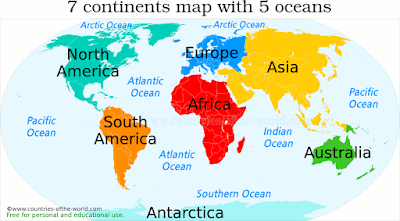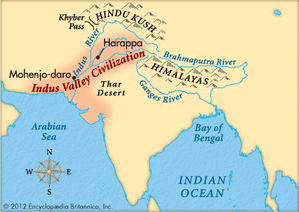Scroll down to see the main points from each unit of study.
Geography
-----------------------------------------------------------------------------------------
Ancient India
Geography
-India is on the continent of Asia
-The mountain range on the northern border is called the Himalayas
-One of the earliest known civilizations in India was the Indus Valley Civilization, built along the Indus River. One of the cities here was called Mohenjo-Daro.
-The two most important rivers in India are the Indus River and the Ganges River.
Religion
-Buddhism
spread throughout the continent because of a man named King Asoka, who,
after meeting a Buddhist monk, decided to use his power and wealth to
build roads and hospitals, and plant trees to help his people.
Ancint China
China Text - We are skipping lessons 3 and 5.
Things to know for test:
|
- The Grand Canal connects the Yellow and Yangtze Rivers
- Confucius was a wise thinker who taught people how to live a virtuous life by being kind to others.
- The Great Wall of China is about 3 stories tall, 1500 miles long today, and the first section took 10 years to build. It was designed to protect China and keep out nomads/invaders.
- Students will need to be able to name 3 inventions of the Chinese.
- Know the steps to making silk:
- Dragons are an important creature to the Chinese during the New Year
- The Chinese New Year celebrates the welcoming of Spring
- Chinese New Year is celebrated on different days each year
---------------------------------------------------------------
Ancient Greece
Greece Text
Things to know for the test:
- Ancient Greece was divided into city-states
- Zeus was king of the gods
- The government in Athens was a democracy
- Spartan boys were trained to be soldiers
- The Greeks won the Persian Wars
- The Olympics were an ancient sports contest created as part of a festival designed to honor the god Zeus. Only free Greek men could partake, and during the Olympics, all city-states agreed to stop fighting.
- The term "Marathon" came from the Battle of Marathon. After winning the battle, the Greeks sent a man to run 26 miles from Marathon to Athens to announce their victory. When he got there, he shouted "Victory!" and then dropped dead from exhaustion. In his honor, we call a race the distance of 26 miles a marathon.
- The Greeks won the Trojan War when they tricked the Trojans. First they pretended to give up. Then they hid inside of a giant wooden horse and offered it as a gift to the Trojans. At night after the Trojans brought the horse inside their gates, the Greeks snuck out, opened the gates, and attacked the city.
- Students need to be able to write and explain why Alexander the Great was considered great. Examples: He never lost a battle, he won more land than anyone else, won more battles than anyone else, he was brave, he was clever when he cut the Gordian knot, he was clever in how he defeated the Indian army with the elephants,
- Students need to be able to write and explain the differences and similarities between life in Athens and life in Sparta.
Westward Expansion
Moving West Text
Pioneers
- Daniel Boone created the Wilderness Road across the Appalachian Mountains to help people get to Kentucky
- Jedidiah Smith was a Mountain Man who discovered the South Pass through the Rocky Mountains
- Robert Fulton invented the steamboat to help make river travel faster
- The Erie Canal was a man-made "river" that connected the Hudson River to Lake Erie. It had a series of locks that allowed boats to change water levels
- The Oregon Trail was the main route West that began in Independence, Missouri and ended in Oregon City, Oregon. It was 2,000 miles long and took 6 months to travel by covered wagon.
- Young, skinny, boys were needed for the Pony Express, which was a horse and rider relay system used for delivering mail across the United States.
- The Transcontinental Railroad went from California to Nebraska and allowed for faster travel between the East and the West.
- 6 months, 2000 miles. Covered wagon trains. People had to walk the whole way because all of their stuff was on the covered wagons. They would walk up to 12 hours a day.
- At night the wagon trains would gather in a circle and eat and do chores and then sleep.
- It was dusty and dirty - when it rained it would get muddy.
- It was dangerous; there were rivers, Native American tribes, mountain lions, and disease.
- Many people got sick or died along the trail.
- People would throw things off their wagons as they traveled if their wagons got too heavy. Some people made a living by following wagon trains and collecting the things thrown off, then selling them to the next group of wagon trains that came by.
- Ranchers/Cowboys: Raised and herded cattle and took them on cattle drives to be sold back East. Raised and trained horses (roping, rodeo, bull riding). Wore cowboy boots, bandanas, cowboy hats, and chaps.
- Farmers: Had to farm on land that was thick and tough. Lack of trees and water. Created a steel plow for tilling the land, used windmills for drawing water up from wells, and made houses out of sod.
- Miners: Tried to "strike it rich" during the Gold Rush. Dug/panned for gold or other precious metals/minerals. Most didn't make a lot of money. Work was hard and long.
- Businessmen: Men like Sam Brannon and Levi Strauss made a living off of the miners who moved into town by selling them things they needed to live, like jeans and shovels.
- Pony Express Riders: Young, skinny, boys would ride for 15 miles a day, 8-10 hours on the backs of horses to deliver mail across the country. They had to avoid dangers like snakes and mountain lions.
- A Boom Town was created when gold/silver or a precious metal was discovered in a place and lots of people moved there to try to "strike it rich"
- When the mines ran dry, people abandoned the town, leaving it a Ghost Town.
- Andrew Jackson forced the Cherokee Indians to walk 1000 miles along the Trail of Tears after he removed them from their land.
- Plains Indians used Buffalo as their primary means of survival. They were expert hunters and used all parts of the buffalo. They used...
- Hair - paintbrushes
- Hide - clothes, tepees
- Bones - tools
- Guts - bowstrings
- Meat - food
- Chips (dung) - fuel (fire)
- The white settlers caused the buffalo to become endangered. They hunted the buffalo for sport, and made belts/robes from buffalo hide. They would kill the buffalo, take the hide, and leave the rest to rot in the sun. They killed them by the thousands, to the point that they were unable to repopulate as quickly as they were killed.
Civil War



